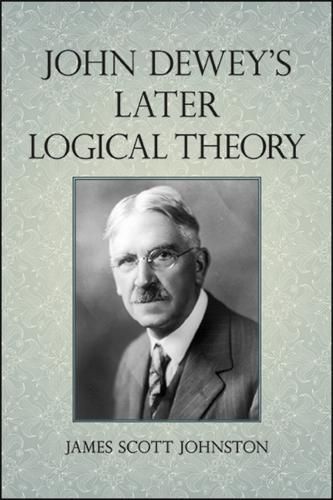Readings Newsletter
Become a Readings Member to make your shopping experience even easier.
Sign in or sign up for free!
You’re not far away from qualifying for FREE standard shipping within Australia
You’ve qualified for FREE standard shipping within Australia
The cart is loading…






By 1916, Dewey had written two volumes on logical theory. Yet, in light of what he would write in his 1938 Logic: The Theory of Inquiry, much remained to be done. Dewey did not yet have an adequate account of experience suitable to explain how our immediate experiencing becomes the material for logical sequences, series, and causal relations. Nor did he have a refined account of judging, propositions, and conceptions. Above all, his theory of continuity-central to all of his logical endeavors-was rudimentary. The years 1916-1937 saw Dewey remedy these deficiencies. We see in his published and unpublished articles, books, lecture notes and correspondence, the pursuit of a line of thinking that would lead to his magnum opus. John Dewey’s Later Logical Theory follows Dewey through his path from Essays in Experimental Logic to the publication of Logic: The Theory of Inquiry, and complements James Scott Johnston’s earlier volume, John Dewey’s Earlier Logical Theory.
$9.00 standard shipping within Australia
FREE standard shipping within Australia for orders over $100.00
Express & International shipping calculated at checkout
By 1916, Dewey had written two volumes on logical theory. Yet, in light of what he would write in his 1938 Logic: The Theory of Inquiry, much remained to be done. Dewey did not yet have an adequate account of experience suitable to explain how our immediate experiencing becomes the material for logical sequences, series, and causal relations. Nor did he have a refined account of judging, propositions, and conceptions. Above all, his theory of continuity-central to all of his logical endeavors-was rudimentary. The years 1916-1937 saw Dewey remedy these deficiencies. We see in his published and unpublished articles, books, lecture notes and correspondence, the pursuit of a line of thinking that would lead to his magnum opus. John Dewey’s Later Logical Theory follows Dewey through his path from Essays in Experimental Logic to the publication of Logic: The Theory of Inquiry, and complements James Scott Johnston’s earlier volume, John Dewey’s Earlier Logical Theory.